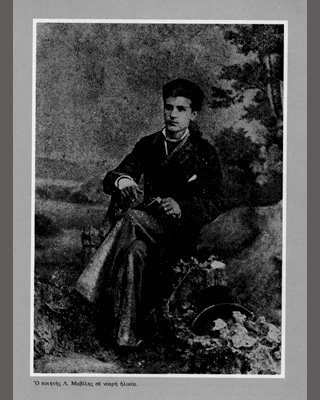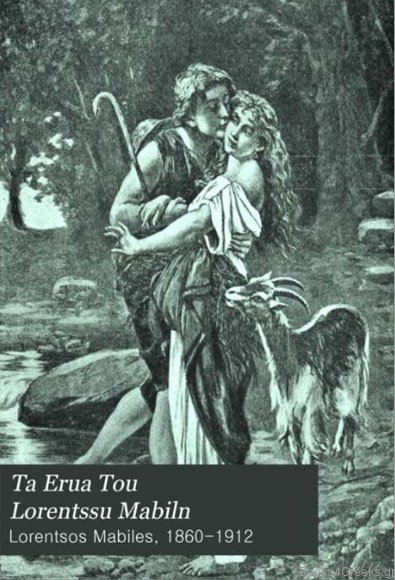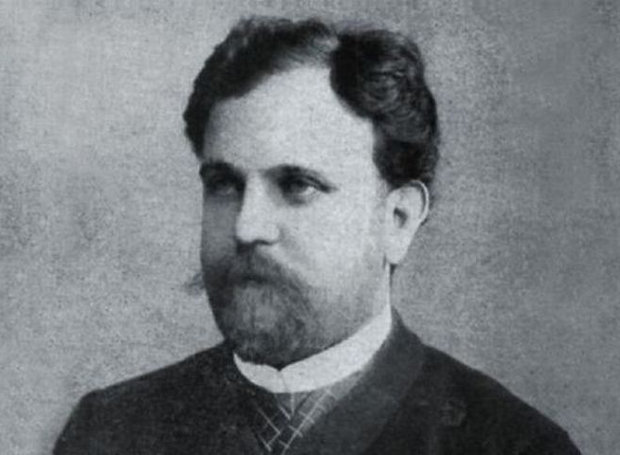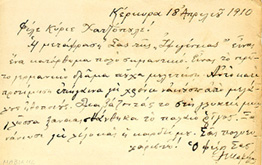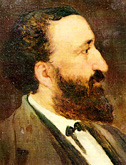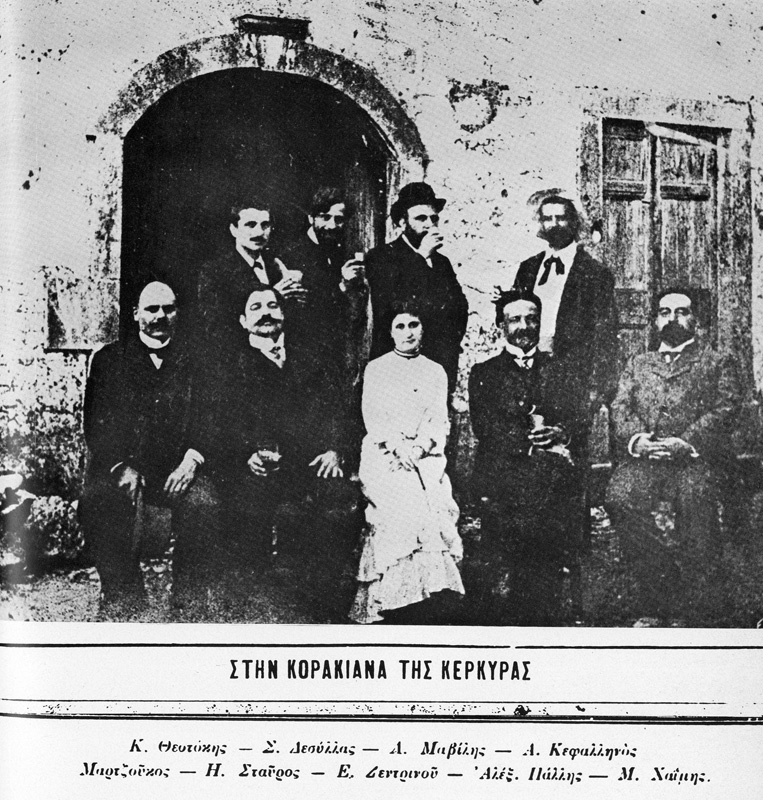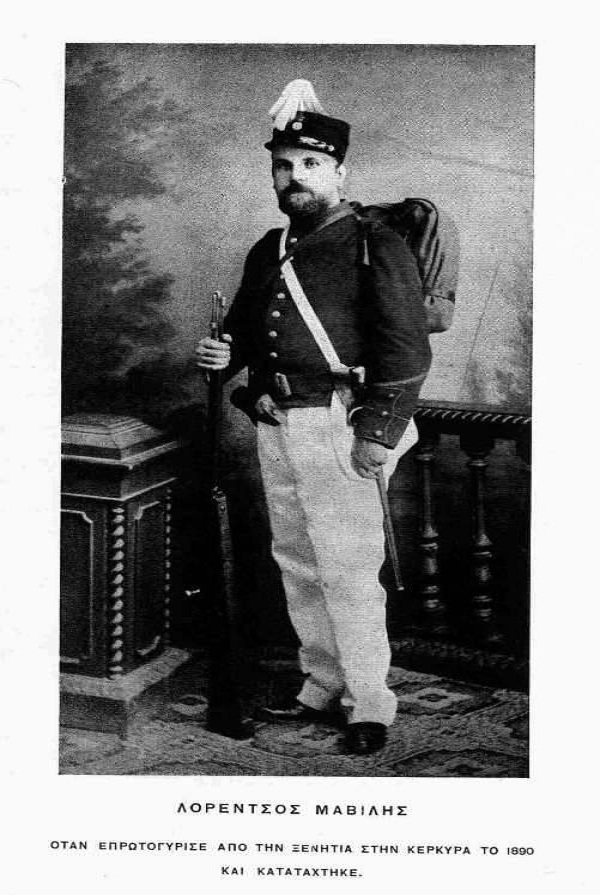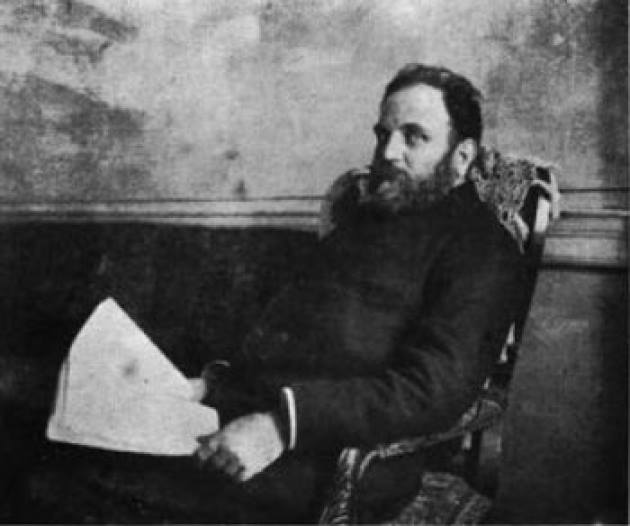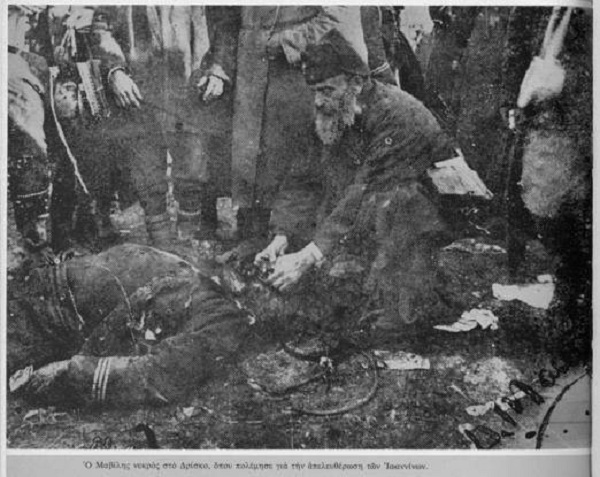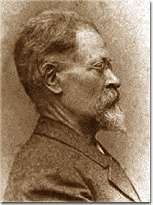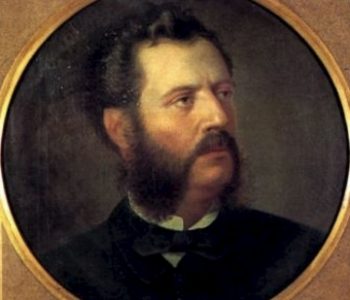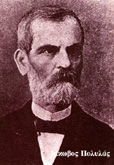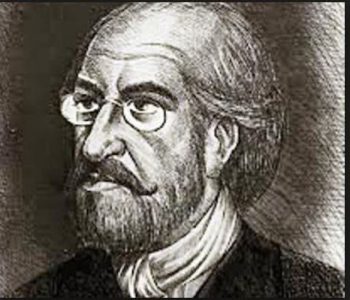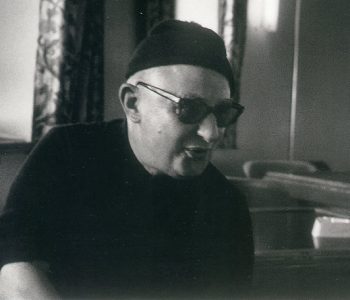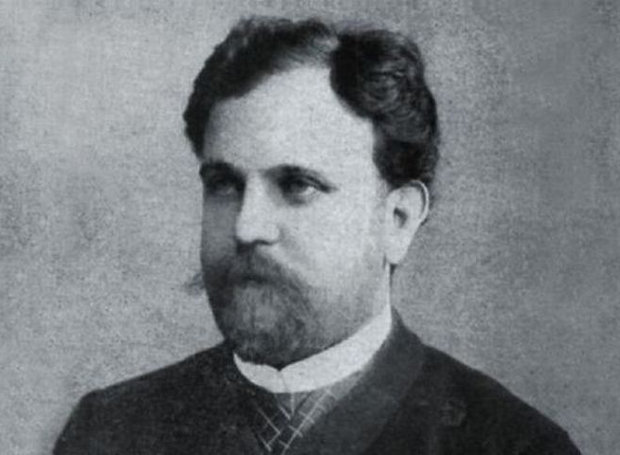
Author: Mavilis, Lorentzos Mavilis
Date of Birth: 1860, Ithaca
Gender: Male
Biography: Lorenzos Mavilis was born on September 6, 1860 in Ithaca, where his father, Pavlos Mavilis, of Spanish descent, served as a judge. His mother, Ioanna Soufi, was a niece of Governor Ioannis Kapodistrias. Mavilis finished his high school studies in Corfu and studied for a year (1877-1878) at the University of Athens School of Philosophy.
He continued his studies at the universities of Munich and Freiburg (1878-1890), where he attended classics, archeology, and Sanskrit, and studied the philosophical systems of the great German philosophers Kant, Fichte and Schopenhauer. In 1890 he was declared a Doctor of Philosophy by the University of Erlangen with the thesis “Two Viennese Manuscripts by Ioannis Skilitzi”. In 1896 Mavilis participated in the revolution of Crete, fighting with the rebels in the Cretan mountains. And in 1897 during the Greek-Turkish war he gathered seventy Corfu volunteers and went to fight in Epirus, where he was wounded in the arm. In 1910 he was elected deputy of Corfu under Eleftherios Venizelos. His speech to the Greek Parliament a year later on the linguistic issue is the climax of his efforts about the linguistic issue (dimotiki vs kathareusa). The phrase “Vulgar language does not exist, existing vulgar people” will remain proverbial, defending the politeness of the “dimotiki glossa”. On November 28, 1912, he became the head of the Garivaldines Volunteers and was killed the next day (November 29, 1912) at the Battle of Mount Driskos near Ioannina during the First Balkan War. He was only 52 years old, at the top of his spiritual creation. Lorentzos Mavilis has not written so many poems and he was excellent at the demanding kind of sonnet cultivated by the French Parnassists. He belongs to the tradition of the Ionian school, as formed by Dionysios Solomos. In his poems he praises his homeland (patrida) and those who fell on the battlefield (To Patrida, Patrida, Pliroma Chronou), expresses his philosophical perceptions (Lithi, Yperanthropos, Elia, Erotas and Thanatos), emphasizes love for mother, (Amilita, Afierosi), the value of friendship (To friend G. Kalosgouros), the ideal love (Anaxio B’, Psychophilima), while devoting particular poems to his friends and associates (N. Kojevinas, Polylas). Particular mention should be made of the sonnet of Faliro (June 1911), where for the first time in Greek poetry the words car, truck and bar are unknown until then in the average Greek citizen. Important is Mavilis’ translation of the poetic work. Knowing many languages, he translated, among others, in Greek Siller, Virgilios, Browning, Foscolo, Byron and extracts from the Mahabharata Indian epic
Times & Writers Lorentzos Mavilis
Selected literature
Chronology Lorentzos Mavilis
1860 | Birth of Lorentzos Mavilis in Ithaca. |
1877-1878 | After finishing his high school studies in Corfu he studied for a year (1877-1878) at the University of Athens School of Philosophy. |
1878-1890 | He continued his studies at the universities of Munich and Freiburg. |
1890 | He was declared as Doctor of Philosophy by the University of Erlangen with the thesis “Two Viennese Manuscripts by John Skylitzi.” |
1896 | He participated in the revolution of Crete, fighting with the rebels in the Cretan mountains. |
1897 | During the Greek-Turkish war, he gathered seventy Corfu volunteers and went to fight in Epirus, where he was injured. |
1910 | He was elected deputy of Corfu under Eleftherios Venizelos. |
1912 | On November 28, 1912, he became the head of the Garivaldines Volunteers and was killed the next day (November 29, 1912) at the Battle of Mount Driskos near Ioannina during the First Balkan War. |
